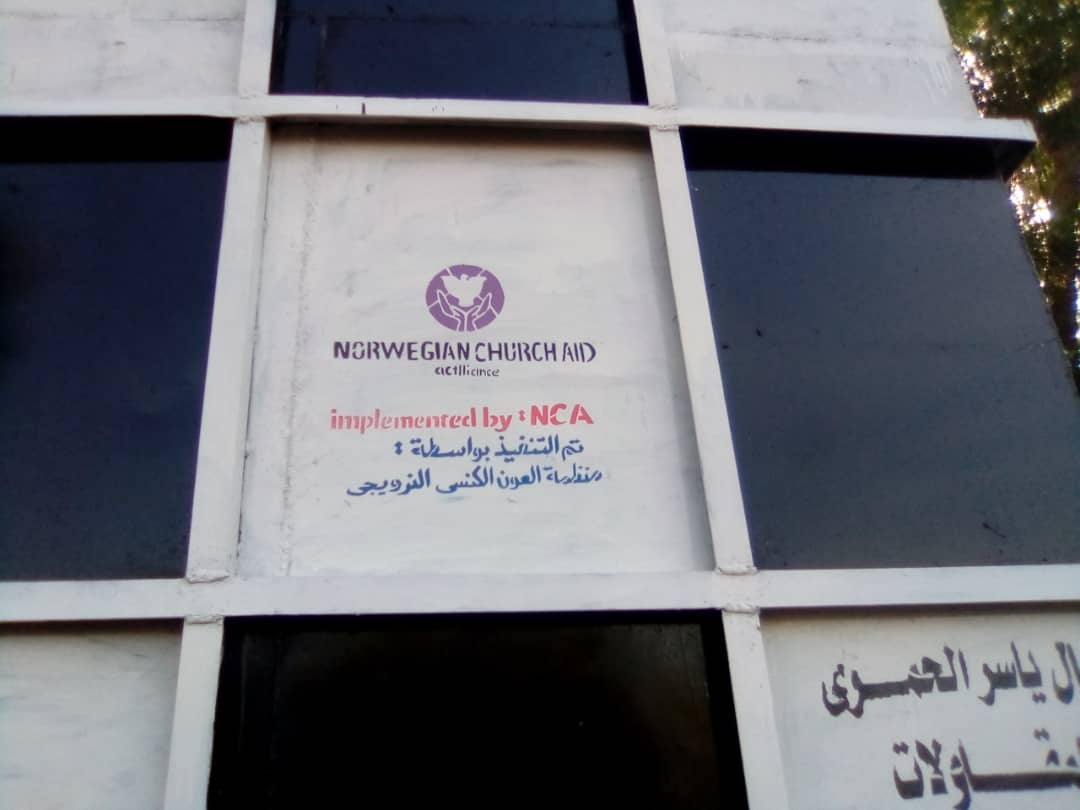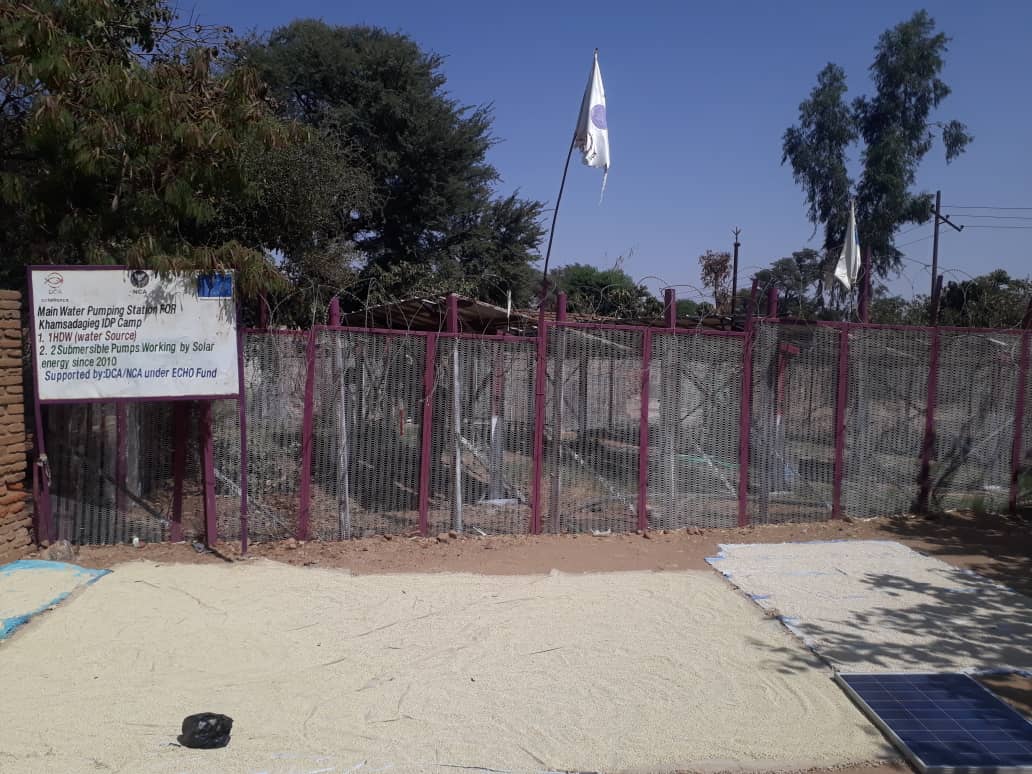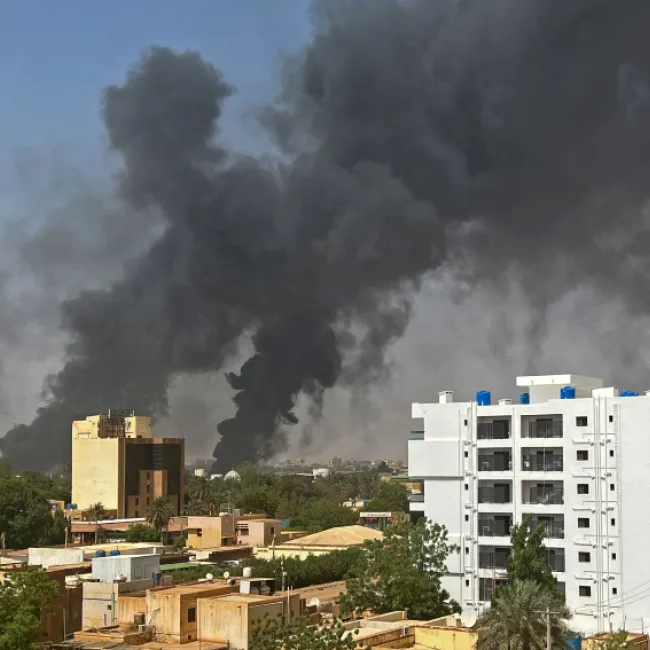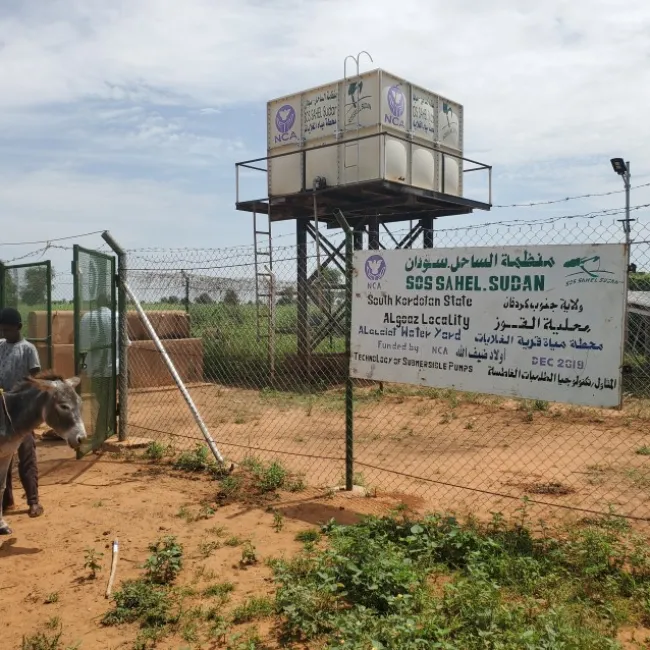Sudan: NCA and USAID, together transitioning from humanitarian assistance to community ownership
In Sudan, NCA has mentored and facilitated CR-WASH Committees with the aim of handing over hygiene-sanitation facilities and services to an Internally Displaced Persons (IDP) Camp.
Empowering societies and creating ownership
NCA Sudan is delighted to announce the complete hand-over of NCA hygiene-sanitation facilities and services to the Khamsadegaiga Internally Displaced Persons (IDP) Camp, home to 19,050 Sudanese people forced to be relocated. With the support of the United States Agency for International Development/Bureau for Humanitarian Affairs (USAID/BHA), NCA has organized, mentored, and facilitated CR-WASH Committees and community leaders for this exchange of ownership. This camp, with its new ownership of former humanitarian projects, now acts as a model for other camps.
NCA has been providing services in this camp since 2005, at the beginning of the Darfur Crisis, and is the only INGO providing CR-WASH facilities and services in this and two additional camps nearby, Hassa Hissa and Hameidi—altogether temporary homes for more than 120,000 people.
To shift accountability and responsibility of the projects over to the rural communities, and to ensure sustainability and resilience of projects, NCA has been working with partners--European Civil Protection and Humanitarian Aid Operations (ECHO) and Danish Church Aid (DCA)--and began phasing out of the Khamsadegaiga camp in 2021. NCA organized, mobilized, and built operational and managerial capacities of volunteer CR-WASH Committees, conducting countless technical training sessions with the camp's social workers to understand maintenance of water pumps, solar pumping systems, operational processes, and communal fee collection mechanisms.


On July 7th, 2022, NCA Sudan officially and fully handed-over the CR-WASH facilities and services, with full ceremony witnessed by the camp community, local government representatives, and the public Water and Environmental Sanitation project, who will be providing future technical support to the community if needed.
"NCA is taking this step as part of its efforts to bridge the resilience gap and empower societies to manage their resources more effectively," says Ebba Tafese, CR-WASH Program Manager/Sudan.
"During the process, NCA has formed and trained strong CR-WASH committees and involved the government sector as major stakeholder to ensure water provision sustainability," Ebba explains. "Community empowerment and creating the sense of ownership for sustainable use of the facilities were the key factors in this achievement."
Thanks to BHA support, NCA CR-WASH services include solar powered and piped water supply system with 12 water distribution points, two water reservoirs with a combined capacity of 70 cubic meters, and 11 handpumps that are fully operational. Together, there is now permissible quantities of water for domestic use in these communities. Since handover, the communities are responsible for overall management and supervision of the water provision, maintaining the cost recovery mechanism, operation, and maintenance of the water supply system and hand pumps.


